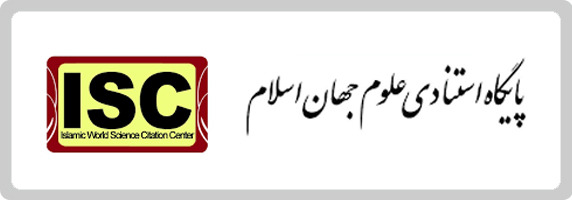Investigating the Impact of the Healthy School Model with an Educational Management Knowledge Approach on the Learning Style of Secondary School Students in Noor County
Keywords:
Healthy school, educational management knowledge, learning styleAbstract
The primary objective of the present study was to investigate the impact of the healthy school model with an educational management knowledge approach on the learning style of secondary school students in Noor County. This study was fundamental-applied in purpose and employed an exploratory mixed-methods design (qualitative–quantitative). In the qualitative section, the grounded theory method was applied, while in the quantitative section, a descriptive-survey method was used. The statistical population in the qualitative phase included senior managers and education experts in Noor County, totaling 20 individuals. In the quantitative phase, the population consisted of 3,291 students from the second level of general, work-study, and technical-vocational secondary schools. In the qualitative phase, purposeful non-random sampling was employed, and based on the saturation rule, 10 participants were selected. In the quantitative phase, using Cochran’s formula, a stratified random sample of 344 students was chosen. For data collection, a semi-structured interview was used in the qualitative section, and in the quantitative section, a researcher-developed questionnaire on the healthy school model with an educational management knowledge approach (66 items) and the learning style questionnaire by Towler and Dipboye (2003) with 54 items were utilized. In the qualitative section, validity was ensured through expert judgment, and reliability was assessed via test-retest and intra-subject agreement. In the quantitative section, face, content, and construct validity were confirmed, and instrument reliability was evaluated using Cronbach’s alpha coefficient and composite reliability, both of which demonstrated the instruments’ validity and reliability. For data analysis, theoretical coding (open, axial, and selective) was used in the qualitative phase, and structural equation modeling (SEM) was applied in the quantitative phase. The findings indicated that the impact of the healthy school model with an educational management knowledge approach on the learning style of secondary school students in Noor County was statistically significant, and the proposed model showed a good fit.
Downloads
References
Abdullah, G., Arifin, A., Saro'i, M., & Uhai, S. (2024). Assessing the Influence of Learning Styles, Instructional Strategies, and Assessment Methods on Student Engagement in College-Level Science Courses. International Education Trend Issues, 2(2), 142-150. https://doi.org/10.56442/ieti.v2i2.466
AlZahrani, S. G. (2023). Healthy Schools Framework in Saudi Arabia: A Narrative Review. International Journal of Pharmaceutical Research & Allied Sciences, 12(1), 110-115. https://doi.org/10.51847/lJ2Fbaa0Vm
Barker, R., Hartwell, G., Egan, M., & Lock, K. (2023). The importance of school culture in supporting student mental health in secondary schools. Insights from a qualitative study. British Educational Research Journal, 49(3), 499-521. https://doi.org/10.1002/berj.3853
Bilbao, M., López, V., Torres-Vallejos, J., Ascorra, P., & Páez, D. (2025). Adaptation of the social well-being scale for teachers and school staff. Revista de Psicología, 43(1), 29-52. https://doi.org/10.18800/psico.202501.002
Chouhan, N., Shan, R., Gupta, M., Rashid, S., & Manhas, M. (2023). Evaluation of preferred learning styles among undergraduate students of Government Medical College, Jammu. National Journal of Physiology, Pharmacy and Pharmacology, 13(3), 574-577. https://www.ejmanager.com/fulltextpdf.php?mno=90877
Daly, B. P., Resnikoff, A., & Litke, S. (2025). Effective School Leadership for Supporting Students' Mental Health: Findings from a Narrative Literature Review. Behavioral Sciences, 15(1), 36. https://doi.org/10.3390/bs15010036
Després, C., Larivière-Lajoie, A. A., Tremblay-Lemieux, S., Legault, M., & Piché, D. (2017). Healthy Schools, Healthy Lifestyles: Literature Review. In Health and Well-Being for Interior Architecture (pp. 123-136). https://doi.org/10.4324/9781315464411-10
González, S. A., Rubio, M. A., Triana, C. A., King, A. C., Banchoff, A. W., & Sarmiento, O. L. (2022). Building healthy schools through technology-enabled citizen science: The case of the our voice participatory action model in schools from Bogotá, Colombia. Global Public Health, 17(3), 403-419. https://doi.org/10.1080/17441692.2020.1869285
Groenewald, E., Groenewald, C. A., Uy, F., Cantere Jr, G., Kilag, O. K., & Depoyart, J. (2024). Enhancing Leadership Skills for Addressing Learning Loss and Mental Health Challenges: Insights from School Leaders in Low-and Middle-Income Countries. International Multidisciplinary Journal of Research for Innovation, Sustainability, and Excellence (IMJRISE), 1(2), 226-232. https://www.researchgate.net/profile/Elma-Groenewald-2/publication/378513262
Kvalsvig, A., Tuari-Toma, B., Timu-Parata, C., Bennett, J., Sinnema, C., Summers, J., & Baker, M. G. (2023). Protecting school communities from COVID-19 and other infectious disease outbreaks: the urgent need for healthy schools in Aotearoa New Zealand. The New Zealand Medical Journal (Online), 136(1571), 7-19. https://doi.org/10.26635/6965.e1571
Lee, A., St Leger, L. H., Ling, K. W., Keung, V. M., Lo, A. S., Kwong, A. C., & Armstrong, E. S. (2018). The Hong Kong healthy schools award scheme, school health and student health: an exploratory study. Health Education Journal, 77(8), 857-871. https://doi.org/10.1177/0017896918779622
Lin, X. (2023). Learning styles and second language acquisition: A review of influences, factors, and educational implications. Journal of Education, Humanities and Social Sciences, 26(1), 891-892. https://doi.org/10.54097/artnwd45
Long, S. J., Hawkins, J., Murphy, S., & Moore, G. (2023). School health and wellbeing and national education system reform: A qualitative study. British Educational Research Journal, 49(4), 674-692. https://doi.org/10.1002/berj.3861
Taylor, S., & Brown, L. (2024). Understanding the role of social support in mental health recovery: A meta-analysis. International journal of psychology, 59(1), 45-60.
Velarde, J. M., Ghani, M. F., Adams, D., & Cheah, J. H. (2022). Towards a healthy school climate: The mediating effect of transformational leadership on cultural intelligence and organisational health. Educational Management Administration & Leadership, 50(1), 163-184. https://doi.org/10.1177/1741143220937311
Weist, M. D., Parham, B., & Figas, K. (2025). Mental Health Literacy and School Behavioral Health: Introduction to the Special Issue. American Journal of Health Education, 56(1), 1-6. https://doi.org/10.1080/19325037.2024.2422073
Zivelonghi, A., & Giuseppi, A. (2024). Smart healthy schools: An IoT-enabled concept for multi-room dynamic air quality control. Internet of Things and Cyber-Physical Systems, 4, 24-31. https://doi.org/10.1016/j.iotcps.2023.05.005
Downloads
Published
Submitted
Revised
Accepted
Issue
Section
License
Copyright (c) 2025 منیژه طالشی , سیده زهرا حسینی درونکلائی , کوروش قاسم زاده (نویسنده)

This work is licensed under a Creative Commons Attribution-NonCommercial 4.0 International License.






